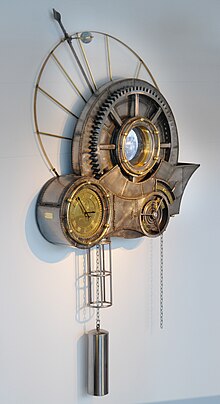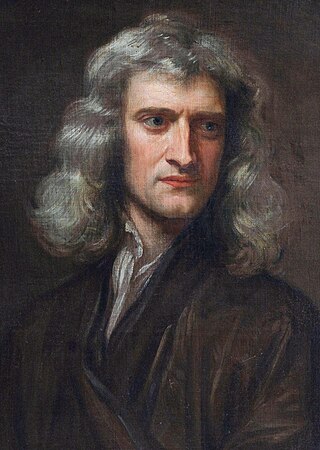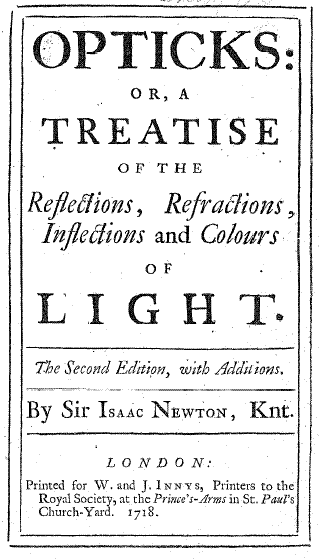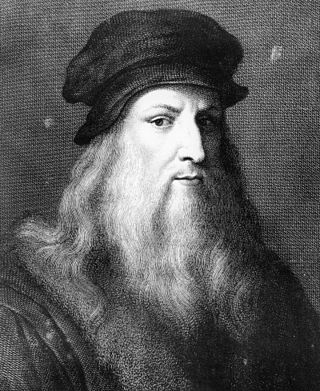
In the history of science, the clockwork universe compares the universe to a mechanical clock. It continues ticking along, as a perfect machine, with its gears governed by the laws of physics, making every aspect of the machine predictable.

In the history of science, the clockwork universe compares the universe to a mechanical clock. It continues ticking along, as a perfect machine, with its gears governed by the laws of physics, making every aspect of the machine predictable.
This idea was very popular among deists during the Enlightenment, when Isaac Newton derived his laws of motion, and showed that alongside the law of universal gravitation, they could predict the behaviour of both terrestrial objects and the Solar System.
A similar concept goes back, to John of Sacrobosco's early 13th-century introduction to astronomy: On the Sphere of the World . In this widely popular medieval text, Sacrobosco spoke of the universe as the machina mundi, the machine of the world, suggesting that the reported eclipse of the Sun at the crucifixion of Jesus was a disturbance of the order of that machine. [1]
Responding to Gottfried Leibniz, [2] a prominent supporter of the theory, in the Leibniz–Clarke correspondence, Samuel Clarke wrote:
In 2009, artist Tim Wetherell created a large wall piece for Questacon (The National Science and Technology centre in Canberra, Australia) representing the concept of the clockwork universe. This steel artwork contains moving gears, a working clock, and a movie of the lunar terminator.
Deism is the philosophical position and rationalistic theology that generally rejects revelation as a source of divine knowledge, and asserts that empirical reason and observation of the natural world are exclusively logical, reliable, and sufficient to determine the existence of a Supreme Being as the creator of the universe. More simply stated, Deism is the belief in the existence of God, specifically in a creator who does not intervene in the universe after creating it, solely based on rational thought without any reliance on revealed religions or religious authority. Deism emphasizes the concept of natural theology.

Gottfried Wilhelm (von) Leibniz was a German polymath active as a mathematician, philosopher, scientist and diplomat. He is a prominent figure in both the history of philosophy and the history of mathematics. He wrote works on philosophy, theology, ethics, politics, law, history and philology. Leibniz also made major contributions to physics and technology, and anticipated notions that surfaced much later in probability theory, biology, medicine, geology, psychology, linguistics and computer science. In addition, he contributed to the field of library science by devising a cataloguing system whilst working at Wolfenbüttel library in Germany that would have served as a guide for many of Europe's largest libraries. Leibniz's contributions to a wide range of subjects were scattered in various learned journals, in tens of thousands of letters and in unpublished manuscripts. He wrote in several languages, primarily in Latin, French and German, but also in English, Italian and Dutch.

Sir Isaac Newton was an English mathematician, physicist, astronomer, alchemist, theologian, and author who was described in his time as a "natural philosopher". He was a key figure in the philosophical revolution known as the Enlightenment. His book Philosophiæ Naturalis Principia Mathematica, first published in 1687, established classical mechanics. Newton also made seminal contributions to optics, and shares credit with German mathematician Gottfried Wilhelm Leibniz for developing infinitesimal calculus.

Space is a three-dimensional continuum containing positions and directions. In classical physics, physical space is often conceived in three linear dimensions. Modern physicists usually consider it, with time, to be part of a boundless four-dimensional continuum known as spacetime. The concept of space is considered to be of fundamental importance to an understanding of the physical universe. However, disagreement continues between philosophers over whether it is itself an entity, a relationship between entities, or part of a conceptual framework.
The teleological argument is an argument for the existence of God or, more generally, that complex functionality in the natural world which looks designed is evidence of an intelligent creator.

The Age of Enlightenment or the Enlightenment was an intellectual and philosophical movement that dominated Europe in the 17th and 18th centuries with global influences and effects. The Enlightenment included a range of ideas centered on the value of human happiness, the pursuit of knowledge obtained by means of reason and the evidence of the senses, and ideals such as natural law, liberty, progress, toleration, fraternity, constitutional government, and separation of church and state.

Samuel Clarke was an English philosopher and Anglican cleric. He is considered the major British figure in philosophy between John Locke and George Berkeley. Clarke's altered, Nontrinitarian revision of the 1662 Book of Common Prayer continues to influence worship among modern Unitarians.
The mechanical philosophy is a form of natural philosophy which compares the universe to a large-scale mechanism. The mechanical philosophy is associated with the scientific revolution of early modern Europe. One of the first expositions of universal mechanism is found in the opening passages of Leviathan by Thomas Hobbes, published in 1651.

Early modern philosophy is a period in the history of philosophy at the beginning or overlapping with the period known as modern philosophy.

Gabrielle Émilie Le Tonnelier de Breteuil, Marquise du Châtelet was a French natural philosopher and mathematician from the early 1730s until her death due to complications during childbirth in 1749. Her most recognized achievement is her translation of and commentary on Isaac Newton's 1687 book Philosophiæ Naturalis Principia Mathematica containing basic laws of physics. The translation, published posthumously in 1756, is still considered the standard French translation. Her commentary includes a contribution to Newtonian mechanics—the postulate of an additional conservation law for total energy, of which kinetic energy of motion is one element. This led to her conceptualization of energy as such, and to derive its quantitative relationships to the mass and velocity of an object.

The watchmaker analogy or watchmaker argument is a teleological argument which states, by way of an analogy, that a design implies a designer, especially intelligent design by an intelligent designer, i.e. a creator deity. The watchmaker analogy was given by William Paley in his 1802 book Natural Theology or Evidences of the Existence and Attributes of the Deity. The original analogy played a prominent role in natural theology and the "argument from design," where it was used to support arguments for the existence of God of the universe, in both Christianity and Deism. Prior to Paley, however, Sir Isaac Newton, René Descartes, and others from the time of the scientific revolution had each believed "that the physical laws he [each] had uncovered revealed the mechanical perfection of the workings of the universe to be akin to a watch, wherein the watchmaker is God."

De sphaera mundi is a medieval introduction to the basic elements of astronomy written by Johannes de Sacrobosco c. 1230. Based heavily on Ptolemy's Almagest, and drawing additional ideas from Islamic astronomy, it was one of the most influential works of pre-Copernican astronomy in Europe.

Isaac Newton was considered an insightful and erudite theologian by his Protestant contemporaries. He wrote many works that would now be classified as occult studies, and he wrote religious tracts that dealt with the literal interpretation of the Bible. He kept his heretical beliefs private.
Classical theism is a form of theism in which God is characterized as the absolutely metaphysically ultimate being, in contrast to other conceptions such as pantheism, panentheism, polytheism, deism and process theism.
The "General Scholium" is an essay written by Isaac Newton, appended to his work of Philosophiæ Naturalis Principia Mathematica, known as the Principia. It was first published with the second (1713) edition of the Principia and reappeared with some additions and modifications on the third (1726) edition. It is best known for the "Hypotheses non fingo" expression, which Newton used as a response to some of the criticism received after the release of the first edition (1687). In the essay Newton not only counters the natural philosophy of René Descartes and Gottfried Leibniz, but also addresses issues of scientific methodology, theology, and metaphysics.
The following outline is provided as an overview of and topical guide to metaphysics:

Newtonianism is a philosophical and scientific doctrine inspired by the beliefs and methods of natural philosopher Isaac Newton. While Newton's influential contributions were primarily in physics and mathematics, his broad conception of the universe as being governed by rational and understandable laws laid the foundation for many strands of Enlightenment thought. Newtonianism became an influential intellectual program that applied Newton's principles in many avenues of inquiry, laying the groundwork for modern science, in addition to influencing philosophy, political thought and theology.

Philosophical theism is the belief that the Supreme Being exists independent of the teaching or revelation of any particular religion. It represents belief in God entirely without doctrine, except for that which can be discerned by reason and the contemplation of natural laws. Some philosophical theists are persuaded of God's existence by philosophical arguments, while others consider themselves to have a religious faith that need not be, or could not be, supported by rational argument.
Deism, the religious attitude typical of the Enlightenment, especially in France and England, holds that the only way the existence of God can be proven is to combine the application of reason with observation of the world. A Deist is defined as "One who believes in the existence of a God or Supreme Being but denies revealed religion, basing his belief on the light of nature and reason." Deism was often synonymous with so-called natural religion because its principles are drawn from nature and human reasoning. In contrast to Deism there are many cultural religions or revealed religions, such as Judaism, Trinitarian Christianity, Islam, Buddhism, and others, which believe in supernatural intervention of God in the world; while Deism denies any supernatural intervention and emphasizes that the world is operated by natural laws of the Supreme Being.